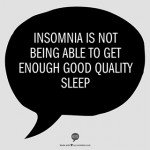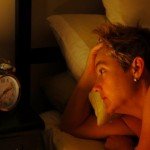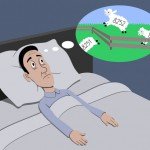Music and sleep
Hello Dear Reader
This week’s blog is dedicated to the launch of my new music and sleep project, which I mentioned at the end of last week’s blog. Here is all the promised detail.
This project marks a new collaboration between myself and the lovely Dr. Simon Durrant, who heads the Lincoln Sleep and Cognition Laboratory. Simon did his masters, PhD and postdoc in music psychology (one of us!) though he has since specialized in sleep research. We were happy to discover we had interests in common and to find an opportunity to work together!
We have launched a brand new survey, about sleep and music. It takes 15 minutes and we would be so grateful if you could spare the time to take part and then pass it on.
By way of a thank you, you will be entered into a draw to win £100 vouchers from a national retailer of your choice (or your international equivalent in online vouchers). You will alsoget instant feedback about your levels of musical sophistication and sleep quality.
If you are happy to take part in our survey then please click on the link below. If you would like more information on the project first then just keep reading…
https://musicpsych.qualtrics.com/SE/?SID=SV_3XnfqJelYvMeVWl
Why are we interested in sleep?
According to a survey by the Mental Health Foundation (2011) two thirds of UK adults experience regular sleep disruption and 1 in 10 have a recognized sleeping disorder, of which there are over 100 varieties.
Sleep disorders cost the NHS over £50 million a year, whilst each poor-sleeping employee costs their employer £1,900 in lost productivity (figures obtained by the Co-operative Pharmacy). Referrals to sleep clinics are on the increase.
Taking all these facts into consideration, there is an urgent need to investigate non-pharmaceutical, low cost and flexible sleep aids.
Music has highly significant potential as a sleep aid: it is low cost, portable, adaptable for individual tastes, and side effect free (at appropriate loudness).
Don’t we know that music helps already?
The power of music to aid sleep is seen in the existence of ‘music for sleep’ CDs, playlists and radio stations. Despite their popularity however, there is little evidence-based research on how sleep quantity or quality is impacted by music.
Some studies claim that listening to music before bed improves sleep by up to 35% in the elderly and student populations (Harmat, Takács, & Bódizs, 2008; Lai & Good, 2005). Some report success in self-sleep ratings but not clinical measures of sleep quality (Chang, Lai, Chen, Hsieh, & Lee, 2012). Others find little beneficial effects (Lazic & Ogilvie, 2007).
The different results from music sleep research arise from three limitations: (1) no study to date has combined music with objective sleep measures for long enough to be really effective, (2) no study to date has investigated what music qualities are important for treatment to be effective and (3) most studies took place in hospitals not in people’s own beds.
The present study will redress this situation by first carrying out a large Internet survey on music and sleep. The aim is to determine how people are currently using music when they encounter sleep difficulties in their day-to-day lives.
Our internet survey will allow targeting and testing of effective music for sleep. It will inform a planned intervention study detailed below.
What will happen after the survey?
Using the results of our survey, Simon and I will carry out an informed ‘music for sleep’ intervention study using new sleep technology in people’s own beds.
How will this research make a difference?
This research will improve understanding of the true effects of music on sleep.

Since poor sleep is on the increase in the UK there is an urgent need to investigate promising low cost and drug free aids, such as music. The present study builds on the existing small research base and provides much needed evidence into how music is used to aid sleep across the largest number of people sampled to date.
The present work will feed into the first rigorous, long term scientific investigations of music on sleep that use objective physiological methods as well as self-report measures.
What will happen once the research is over?
The research results (never private individual data) will be disseminated to the health community for clinicians to advise their patients on the use of music for sleep disturbance.
The results will also be available for the industries that develop sleep aids, thereby promoting evidenced-based development of these tools.
 The ultimate aim of our research is to help improve wellbeing, for which good sleep is critical. Poor sleep is associated with serious health problems such as heart disease, stroke, depression and other mental health disorders (Cappuccio et al. 2011; Mental Health Survey, 2011[1]). Poor sleep also impacts negatively on work productivity and concentration (Leger, 2000; Daley et al., 2009).
The ultimate aim of our research is to help improve wellbeing, for which good sleep is critical. Poor sleep is associated with serious health problems such as heart disease, stroke, depression and other mental health disorders (Cappuccio et al. 2011; Mental Health Survey, 2011[1]). Poor sleep also impacts negatively on work productivity and concentration (Leger, 2000; Daley et al., 2009).
The present research will contribute to quality of life in sleep sufferers by providing the first set of objective results on the impact of music on sleep.
And this is where you come in!!
Please find 15 minutes to tell us all about your life with sleep and music.
What do I get?
You will take three questionnaires that will provide instant scores for you on your levels of musical sophistication and recent sleep quality.
If you provide an email address then you will be entered into a prize draw to win £100 worth of vouchers from a national retailer of your choice (or your international equivalent in online vouchers).
Is it safe?
This survey has been ethically approved by The University of Sheffield Music Department’s research ethics review procedure.
Furthermore, we are using the most secure survey tool, Qualtrics. This tool guarantees anonymity and safe storage of data. It is used by 97 of the top 100 business schools and 1300 universities worldwide, as well as top companies such as Mastercard, Fedex, Nestle, Toyota, and ABC broadcasting.
How do I take part?!
Just click when you have 15 spare minutes and answer a few questions.
https://musicpsych.qualtrics.com/SE/?SID=SV_3XnfqJelYvMeVWl
Remember to leave your email so you can be entered into the prize draw to win £100 of vouchers from a national retailer of your choice (or your international equivalent in online vouchers)!
[1] http://www.mentalhealth.org.uk/our-work/campaigns/sleep/?view=Standard

2 Comments
Diana Hereld
Hello, my favo(u)rite music psychologist! I really must touch base with you soon, because I’ve just found myself ironically enough contacted by the the head of circadian biology in my new graduate school (University of CA, San Diego) for my ‘musical perspective’. I shall have to pass your study along!
I see I’m a bit late to the game, but maybe you could still use participants? Hope all is very well on your side on the pond!
vicky
Hello my favourite reader! Yes please, the sleep survey is still absolutely open and please do pass it on as well. Here is the link again: https://musicpsych.qualtrics.com/SE/?SID=SV_3XnfqJelYvMeVWl All the best, Vicky